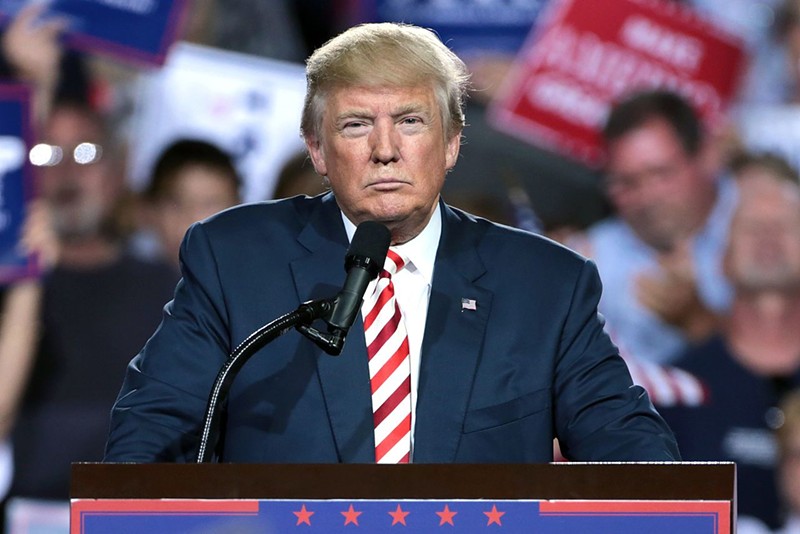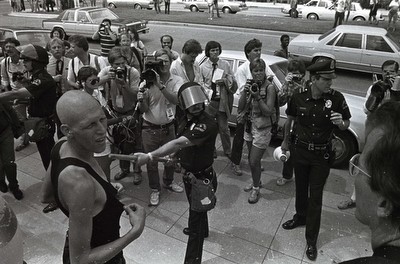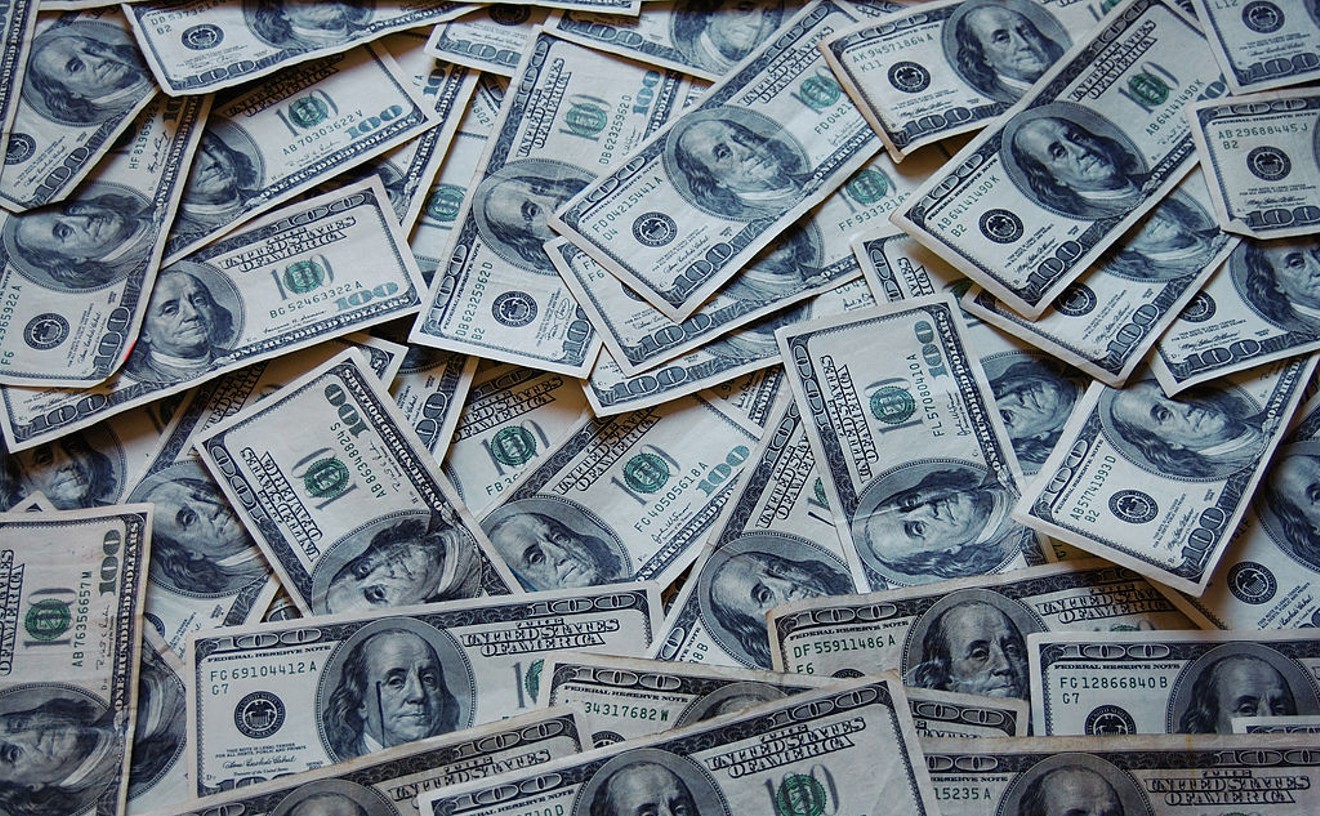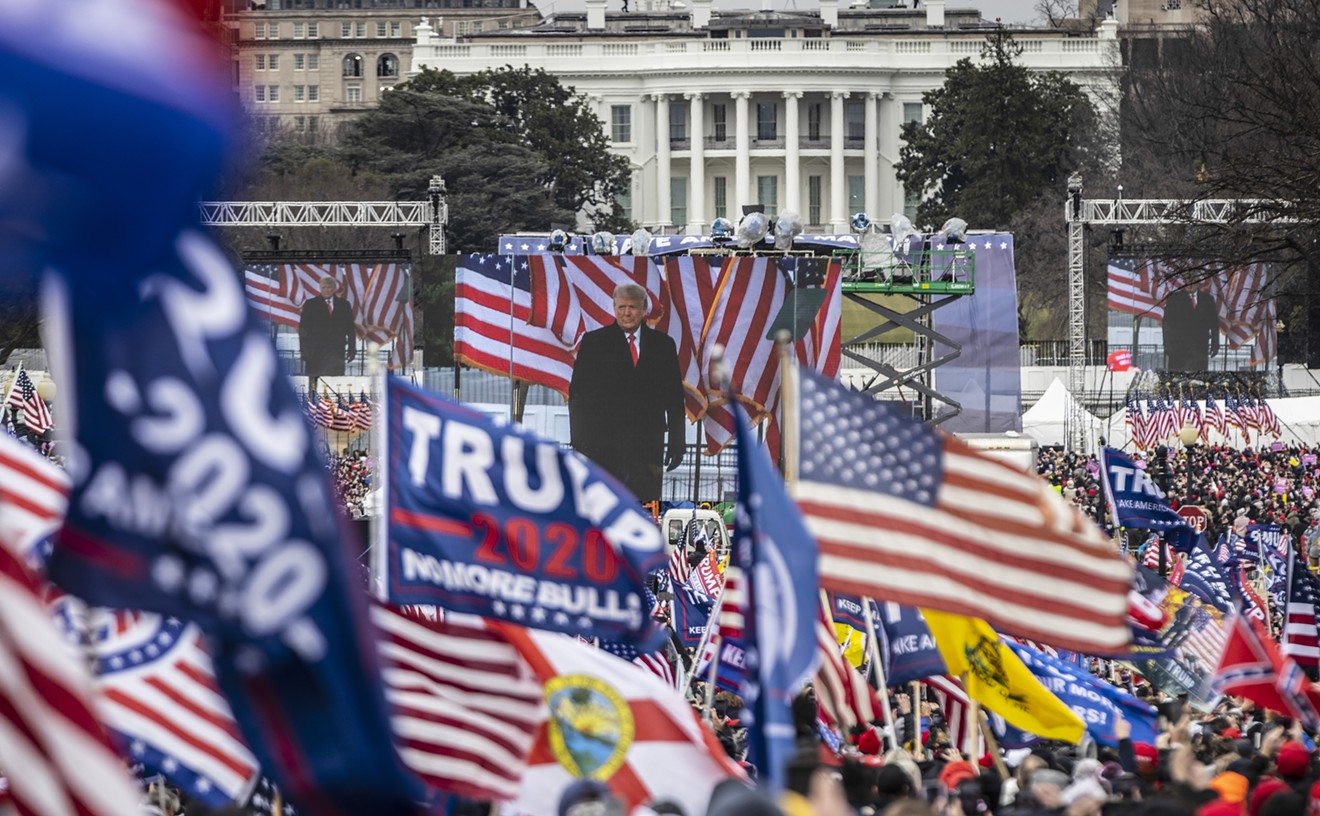Since Saturday evening, the former president has traded the fiery rhetoric that has been the signature of his presidential campaigns for a more conciliatory tone. In an interview with The New York Post on Sunday, Trump said that he had planned on giving an “extremely tough" speech on Thursday but that he has switched gears following the attempted assassination. He added in the interview that he’s now moving froward with plans for a speech that will aim to unite Americans.
The former president is expected to receive the GOP's nomination for commander-in-chief at the Republican National Convention in Milwaukee this week. Regardless of the message Trump conveys this week in Milwaukee, the convention will certainly differ from the one held in Dallas in 1984.
That year, Dallas was at the center of the American socio-political universe, Jeff Liles, a promoter and writer in the city, wrote in the Observer at the time. The Republican National Convention in 1984 was met with a protest of rockers led by the band the Dead Kennedys called "Rocking Against Reagan."
In 2016, Trump was the underdog in the GOP race and faced criticism and opposition from the established, more traditional sectors of the party. But he won’t encounter any pushback from Republicans at the convention this time around. Like Ronald Regan in Dallas in 1984, Trump will headline the Milwaukee convention with a primetime speech on the final night in front of a massive audience. Before him, we’ll hear from the likes of Florida Gov. Ron DeSantis, CEO and president of the UFC Dana White, Trump’s son Don Jr. and a host of other speakers. Texas politicians will also have their moments in the spotlight, as Dallas Mayor Eric Johnson, Sen. Ted Cruz and Gov. Greg Abbott are each scheduled to speak.
“I have been amazed by how negative Donald Trump and his acolytes are about America." – Jeffrey Engel, SMU
tweet this
The Republican Party of the Past
The political landscape today is vastly different from the days when the convention was held in Dallas, four years after Regan survived an assassination attempt against his own life.To understand those differences, Jeffrey Engel, a presidential historian at Southern Methodist University, said you have to go back a bit further, to 1964. That year, he explains, the South began to flip from being a Democratic stronghold to becoming the heartland of Republican politics.
“That transformation of the South and the Republican Party was almost entirely over civil rights,” Engel said. “Essentially, Southerners who have trusted the Democratic Party to keep Jim Crow intact lost faith with the Democratic Party when first John Kennedy and then, even worse, their own Lyndon Johnson pushed forward a civil rights agenda.”
When Reagan was the Republican nominee in 1980, one of the first speeches he gave after the Republican National Convention was in Neshoba County, Mississippi, near the site where three civil rights workers were murdered in 1964. During that speech, Reagan stressed the importance of states' rights.
“Every sentient being on the planet understood that when he was talking about states' rights, he was saying the Republican Party will protect the rights of whites in the South,” Engel said. “All of which is to say the Republican Party that we’re seeing today, which is overwhelmingly white and overwhelmingly Southern, has its origins in all the transformations of American politics over the last 60 years.”
One thing that has changed since the days of Reagan, though, is the Republican Party’s stance on immigration.
“Ronald Reagan was in favor of immigration. There’s just no other way to put it,” Engel said. “He actually thought people who came to this country, even those without proper documentation, were the best of America because those are the people that really want to be there. … It’s just an incredible 180 degree difference from where the party is today.”
Also in the ’80s, the defining characteristic of the Republican Party was its opposition to Moscow. Back then, there was opposition to communism and the Soviet Union and just a general distrust of Russians.
“Today, I think it’s fair to say that the Republican Party is the more pro-Moscow of our two parties,” Engel said.
There was also a sense of confidence in the country when Reagan was running, a stark contrast to how Trump and modern Republicans view the U.S. “I have been amazed by how negative Donald Trump and his acolytes are about America,” Engel said. “Even if they think it’s the correct assessment, that’s historically not been a winning strategy.”
He said people want to vote for the optimistic candidate talking about the future, not the angry candidate talking about how things were better in the past. Trump’s negativity of the country might rile up his base, but Engel doesn’t think it will motivate enough people for him to secure the presidency.
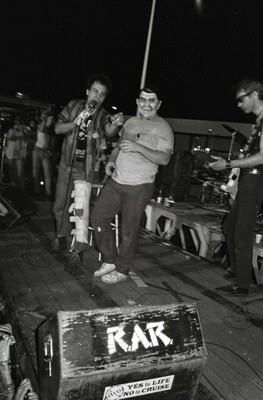
A band performs in Dallas in 1984 during the Rocking Against Reagan protest concert.
Dallas Observer
But this could be a pivotal moment for the Republican Party, Engel said. This election could be its last gasp. “If they lose again, somebody might keep the name, but it’s not going to be anything that resembles what the Republican Party was at any time in its history,” he said.
This election, Democrats argue, could also be democracy’s last gasp. If the stakes were different, if Trump weren’t the presumed Republican nominee, Biden likely wouldn’t be running, Engel argues.
There’s also a little bit more division within the Republican Party these days, according to Matthew Wilson, an SMU political scientist.
“Part of Reagan’s great political achievement was to bring together all kinds of Republicans," Wilson said. “They were all under the Republican tent at that time and were able to get along reasonably well. Fast forward to today, and of course, we have a different situation.”
Another difference between now and 40 years ago is that the presidential race is much closer, while there’s more division in the GOP, which Trump is trying to mend, Wilson said. The national defense conservatives who have come to be known as neo-cons have bailed on Trump, he said.
“But the thing there is that those people are much more prominent at the elite level than they are at the mass public,” Wilson said. “He needs to balance the free market, lower tax inclinations of a lot of people in the Republican Party with the growing kind of populist, blue-collar, pro-labor, pro-entitlement faction in the Republican Party. How he can make that work is going to be interesting to see.”
Trump will also have to hang on to the votes of evangelical Christians if he hopes to be elected president. But, so far, Trump’s campaign has been one of division and fear, not unity. That might change, given the events of the weekend, according to the former president. But before Trump was shot, Wilson explained the former president's strategy so far.
“Donald Trump is trying to run a campaign that is more focused on tapping into people's fears and concerns about the country than it is tapping into their greatest hopes and dreams about the country.”
However, things might change in the short term in light of the recent assassination attempt on Trump, Wilson said. “Trump has already signaled that he is rewriting his convention address to focus on more unifying themes,” he said. However, other speakers have been told to change nothing about what they planned to say at the convention, according to NBC News.
But still, Wilson said, “I think that the effort, at least at the Republican convention, is to have a little more conciliatory, unifying tone than what we would otherwise have seen.” He also thinks the assassination attempt will do something to unite the Republican party a bit more. The recent inclusion of Nikki Haley in the convention, who ran against Trump, is a signal of this, Wilson said. Before the assassination attempt, Haley wasn’t going to attend the convention. “I think that they are trying for a bigger tent, more inclusive approach,” Wilson said, “and that is reflected in Haley’s getting a primetime slot at the convention.”
We’re not sure how long these unifying themes will hold up though. Engel guesses it will be temporary at best. “Trump has said he’s going to try to be a unifier,” Engel said. “But, the truth is, a tiger doesn’t change his stripes. He may talk about unification in July, but in the heat of the campaign and perhaps even another debate, I think he will revert back to form.”

